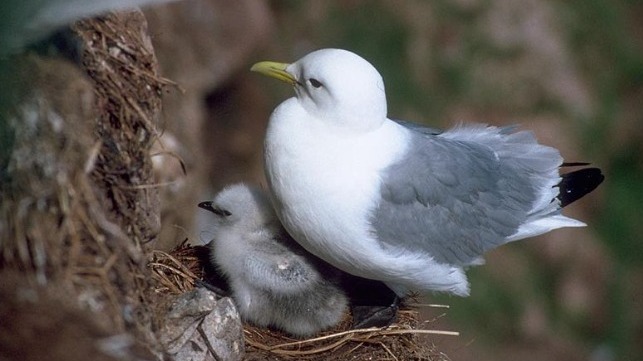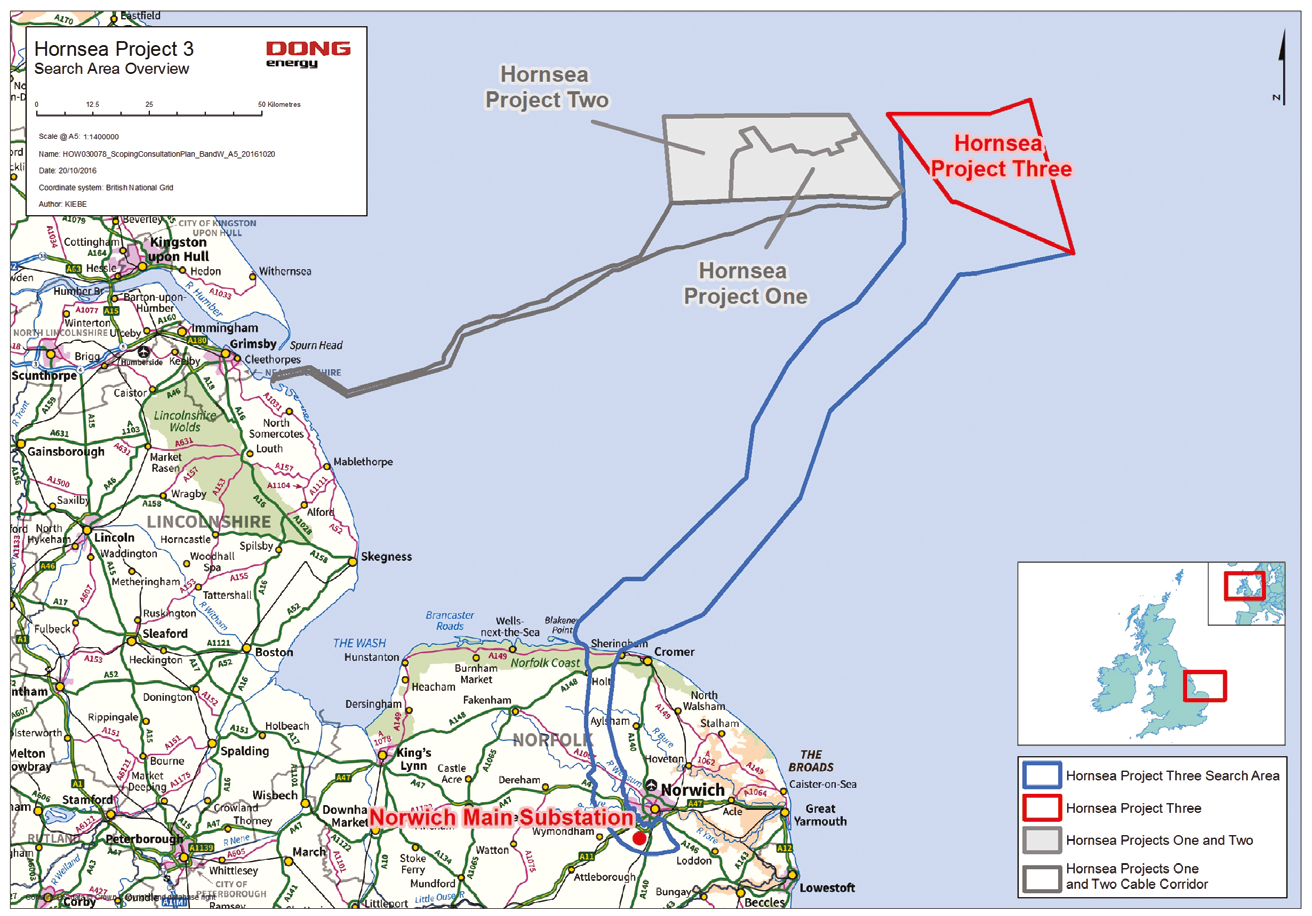With $20M Bird Nesting Plan, Orsted Wins Permit for Giant UK Wind Farm

After promising to spend $20 million to build artificial nesting sites for black-legged kittiwakes, offshore wind developer Orsted has won government approval for its giant Hornsea 3 wind farm in the UK North Sea.
At 2.4 gigawatts of capacity, the third phase of the Hornsea lease development is the largest project in Orsted's already-large portfolio. It will make a significant contribution to the UK's plan to add another 30 gigawatts of offshore wind to the grid by 2030, which will require the installation of an average of one turbine every weekday for a decade.

Chart courtesy Orsted
The Hornsea 3 plan encountered early opposition from the Royal Society for the Protection of Birds (RSPB), which contends that the project poses a threat to the kittiwake, a member of the gull family. The kittiwake population in the UK has dropped by 70 percent in three decades, according to the RSPB, driven down by a range of ecological and human pressures. RSPB is concerned that offshore wind development in areas of kittiwake habitat would add to existing stressors, threatening the bird's UK population. (Kittiwakes are also in decline worldwide, and the IUCN classified the species as "vulnerable" in 2017.)

that matters most
Get the latest maritime news delivered to your inbox daily.
RSPB supports offshore wind development in general, but it wants the government to integrate wildlife impact into its planning and permitting process. It asserts that Hornsea 3's location puts it in a position to cause irreversible damage to kittiwake colonies on the coast of Yorkshire - even with Orsted's offer to install four artificial nesting sites.
“Today’s decision is nothing short of a gamble . . . The government has accepted that the expansion of offshore wind farms in this part of the North Sea will be damaging to seabird numbers in the surrounding area and is putting its faith in an unproven compensation scheme," said RSPB global conservation director Martin Harper in a statement. “It may be a decade or more by the time we know if it has been successful, by which time Hornsea Three and many more projects may have been constructed and the damage to [Yorkshire kittiwake colonies] could be irreversible. Industry alone cannot reconcile the challenge of increased deployment and threats to nature. These are a symptom of poor planning and must be urgently addressed by the government."
